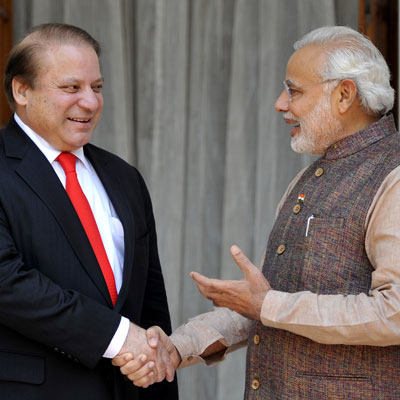Newspaper Article 08/05/2014

With the Indian elections in full swing, the polls suggest that the Bharatiya Janata Party (BJP) may win a majority, or at least a plurality, of seats and, with some support from like-minded parties, form the next government.
The BJP may not be in a position to single-handedly forming a government because the importance of local parties in India has also grown over time. But the problem with a coalition government under the Indian system remains that the ruling party’s ability to make clear decisions is often weakened.
The BJP has nominated Narendra Modi for prime minister who has a spotty image inside Pakistan. Most Pakistanis hold him responsible for the Gujarat riots of 2002.
In Pakistan, the political parties’ foreign policy priorities, including relations with India, influence their electoral support the least, while in India, ties with Pakistan are a major factor which may affect election outcomes.
The more a political party is against Pakistan the easier for it to get more public support in the elections. Thus to seek political gains Modi raises his fist and criticizes Pakistan.
Pakistan is observing elections in India with interest since the results will be determining factor toward ties between New Delhi and Islamabad.
Pakistani Prime Minister Nawaz Sharif has always been soft toward India and this time again he is looking forward to warming up bilateral ties. Nawaz is ready to extend the hand of friendship toward India and eager to improve bilateral ties.
In fact, Pakistan has learnt the fact that the present era is one of geo-economics and economics alone can change the fate of the people. For this purpose Sharif’s focus is improving trade ties with all neighboring countries, including India.
A comparison between the BJP and Sharif’s Pakistan Muslim League-Nawaz (PML-N) would reveal that both parties are courageous in taking decisions. The 1998 nuclear test is an example, which was followed by then BJP prime minister Atal Bihari Vajpayee’s visit to Lahore and the signing of the Lahore Declaration in 1999. Therefore, we can hope that the BJP and the PML-N will, instead of weakening ties, promote them.
India is growing, and to fulfill the needs of its domestic market it needs energy and trade with the outside world. India has no room for expansion in the South and the most likely route for its growth passes through Pakistan. Similarly, Pakistan cannot reach other South Asian countries without crossing India.
It is important for leaders on both sides of the fence to understand what the prevailing geo-strategic situation requires from both countries. The long-standing enmity has contributed to the underdevelopment of both nations. The potential of both India and Pakistan cannot be realized to the full advantage of the people because of their bitter rivalry.
Hence the new Indian leadership needs to formulate policies keeping in view the evolving regional and global developments. The environment calls for greater cooperation instead of confrontation.
Pakistan is ready and hopeful for the improvement of ties with India. Not only cooperation is mutually beneficial, but for the development of South Asia as a region, it is important that conflicts be solved through peaceful means.
Source:Global Times, May 8, 2014
Disclaimer: Views are of the writer and do not necessarily reflect policy of IPRI.
